Dalradian gold mine consultation was not a 'tickbox exercise'
- Published
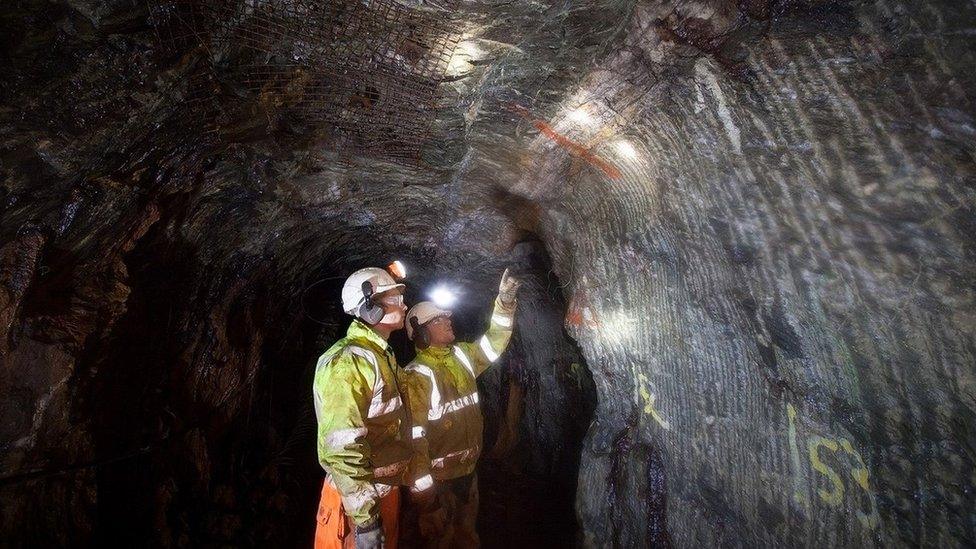
Dalradian Gold claims there are £3bn worth of deposits in the Sperrin Mountains
A company planning a controversial goldmine in the Sperrin Mountains was not involved in a "tickbox" consultation exercise with the local community, a court has heard.
Dalradian has applied for permission to develop the mine, which it claims could tap into £3bn in gold and provide a £750m boost to the NI economy.
But the development is being opposed by some residents.
They are challenging aspects of the planning process in the courts.
The residents claim a mandatory community consultation ahead of the submission of the planning application for the mine near Greencastle, County Tyrone was deeply flawed.
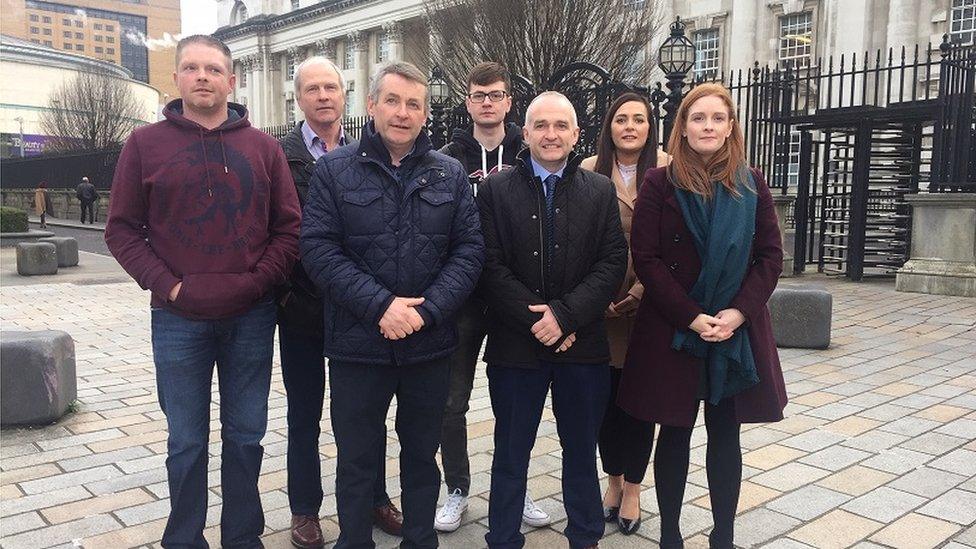
Members of Greencastle, Rouskey and Gortin Concerned Citizens pictured outside court at an earlier hearing
A barrister argued their case in December and the last two days has seen the conclusion of the case, with counsel for the Department for Infrastructure and the mine company addressing the court.
On Tuesday, a lawyer for Dalradian said the idea that consultation had been anything less than an honest attempt to engage with people was an "unfair characterisation".
He said the fact that some opponents considered it to be a tickbox exercise meant that it would have been very difficult for the mine company to do anything to satisfy them.
The court was told that the company had run a number of community consultation events to inform people about the proposals in Autumn 2016.
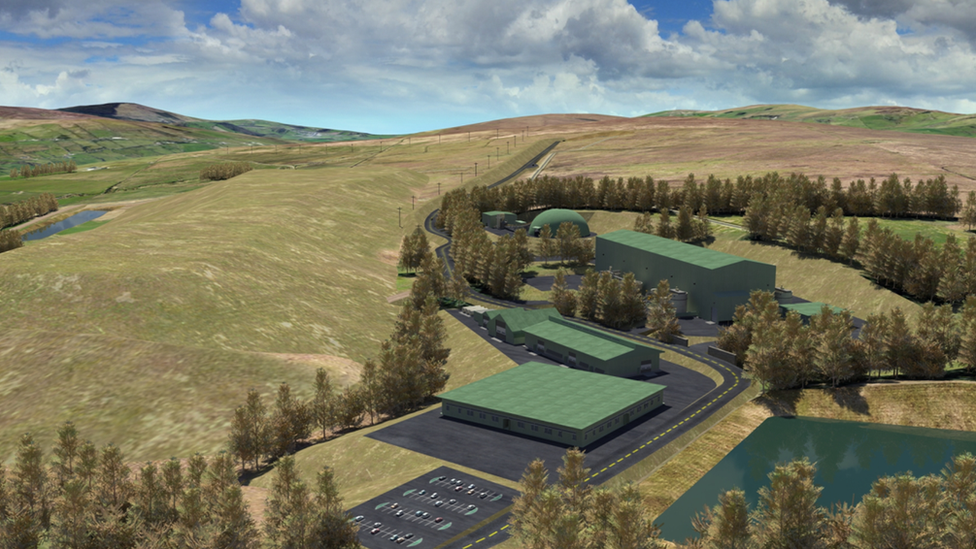
Dalradian say they are designing a safe project, meeting and exceeding all regulations
They were booked to be held at a local community centre but, not long before the event was due to take place, the company got a letter from the centre's management committee.
It said the committee had discussed the plan to host the event on their premises and had decided it was "unsuitable", but did not explain why.
The barrister said the "rug had been pulled from under Dalradian at the last minute".
As a result, the company switched the information evenings to its own base, leading to claims that they were not independent.
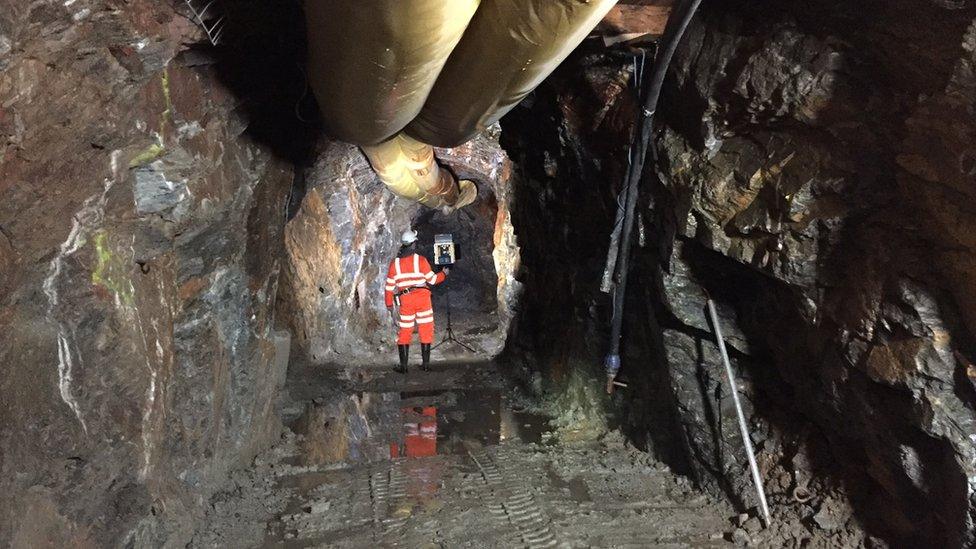
A planning application has now been lodged and will come before the Department for Infrastructure
Residents from the villages of Rouskey, Greencastle and Gortin have lodged the legal challenge.
They claim that there were major discrepancies between the plans the public were shown and what was submitted to planners - in effect, that the development as outlined to residents was not "fully cooked" and they were not in a position to make an informed judgement on it.
As a result they say the community consultation was flawed and, on that basis, the planning application should never had been accepted by the Department for Infrastructure, which is to adjudicate on it.
But, earlier this week, counsel for the department said the consultation exercise had been a "healthy" one.
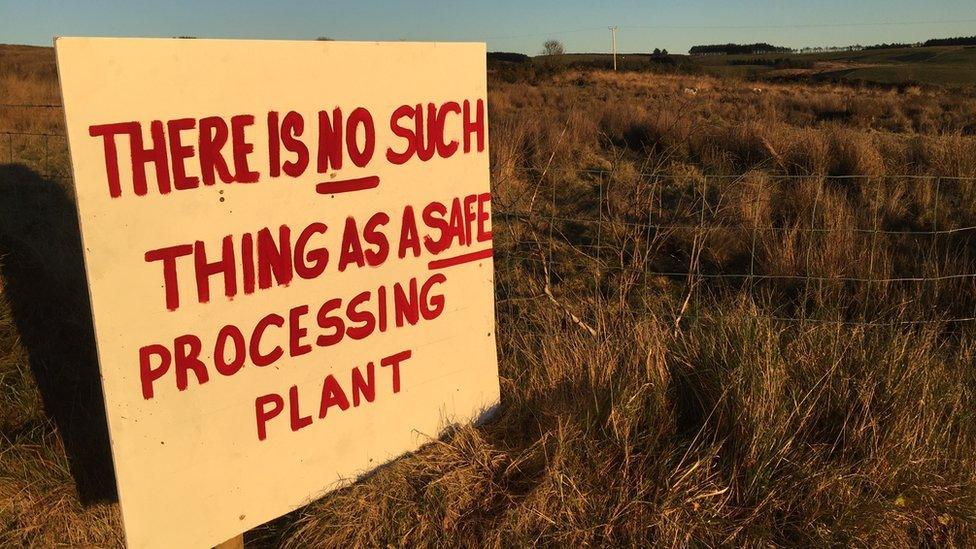
People living near the proposed gold mine say they fear human error or equipment failure could lead to a cyanide spill
He said the system allowed for changes between what the community was shown and what the planners were finally sent, and such amendments showed the public consultation process was working.
The court was told that there had been 10,000 objections to the mine plans, but that 3,000 letters of support had also been received.
Objectors are opposed to 144 hectares of surface development in an area of outstanding natural beauty; plans for a huge spoil heap of crushed rock to be contoured into the landscape; and the use of a cyanide solution in the gold recovery system.
Judgement in the case is expected on 22 February.
- Published23 January 2019

- Published5 December 2018
